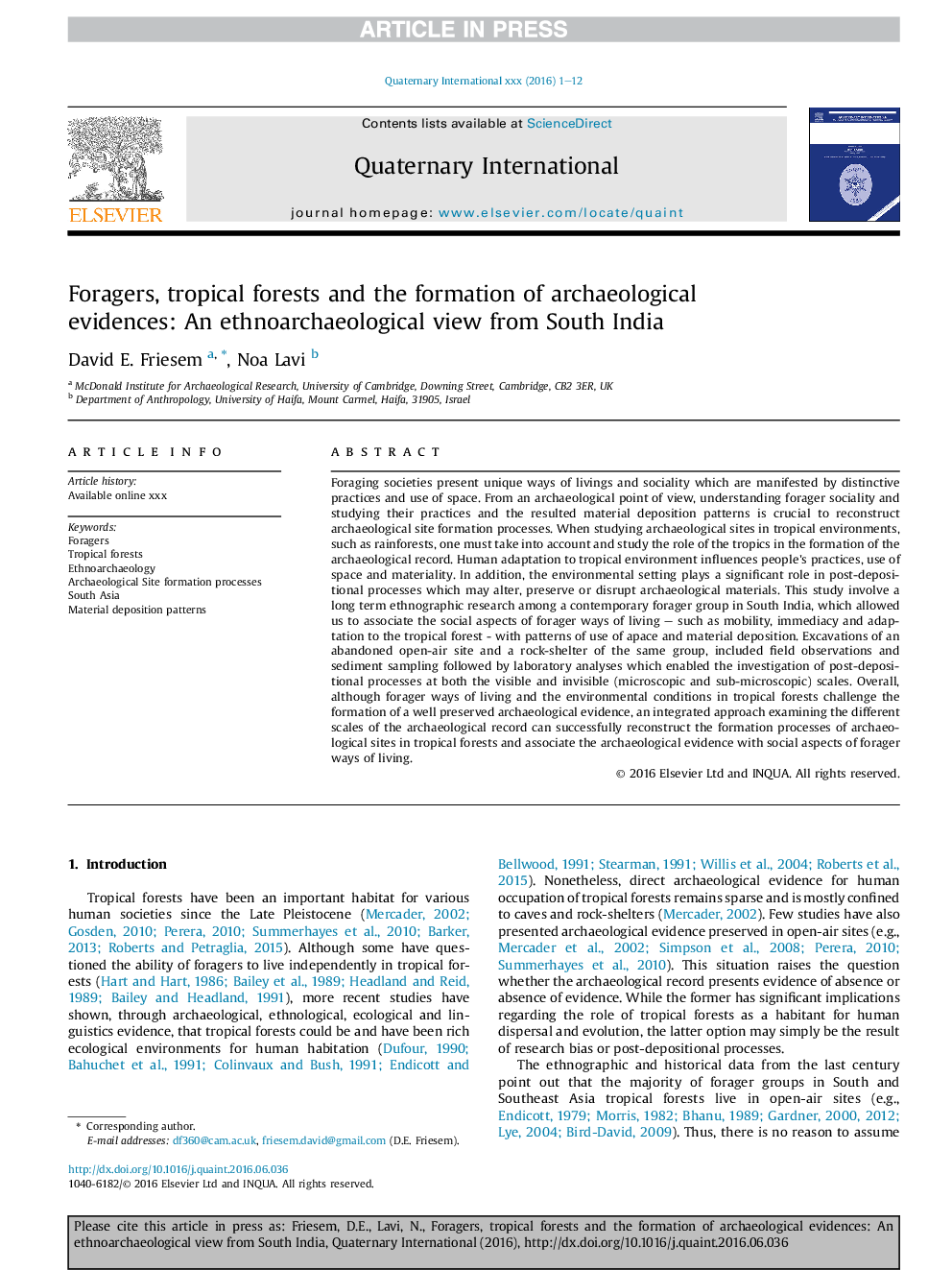| Article ID | Journal | Published Year | Pages | File Type |
|---|---|---|---|---|
| 5113036 | Quaternary International | 2017 | 12 Pages |
Abstract
Foraging societies present unique ways of livings and sociality which are manifested by distinctive practices and use of space. From an archaeological point of view, understanding forager sociality and studying their practices and the resulted material deposition patterns is crucial to reconstruct archaeological site formation processes. When studying archaeological sites in tropical environments, such as rainforests, one must take into account and study the role of the tropics in the formation of the archaeological record. Human adaptation to tropical environment influences people's practices, use of space and materiality. In addition, the environmental setting plays a significant role in post-depositional processes which may alter, preserve or disrupt archaeological materials. This study involve a long term ethnographic research among a contemporary forager group in South India, which allowed us to associate the social aspects of forager ways of living - such as mobility, immediacy and adaptation to the tropical forest - with patterns of use of apace and material deposition. Excavations of an abandoned open-air site and a rock-shelter of the same group, included field observations and sediment sampling followed by laboratory analyses which enabled the investigation of post-depositional processes at both the visible and invisible (microscopic and sub-microscopic) scales. Overall, although forager ways of living and the environmental conditions in tropical forests challenge the formation of a well preserved archaeological evidence, an integrated approach examining the different scales of the archaeological record can successfully reconstruct the formation processes of archaeological sites in tropical forests and associate the archaeological evidence with social aspects of forager ways of living.
Related Topics
Physical Sciences and Engineering
Earth and Planetary Sciences
Geology
Authors
David E. Friesem, Noa Lavi,
